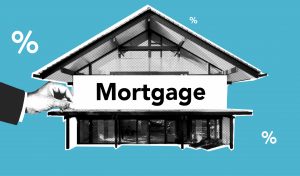
Advantages of Different Types of Mortgage Lenders
What kind of lender is best?
If you ask a loan officer, “What kind of lender is best?” the answer will be whatever kind of company he works for and he will give you a list of reasons why. If you meet the same loan officer years later, and he works for a different kind of lender, he will give you a list of reasons why that type of lender is better.
REALTORS® will also have differing opinions, and those opinions have and will continue to change over time. In the past, it seemed like most would recommend portfolio lenders. Now, they usually recommend mortgage bankers and mortgage brokers. Most often they direct you to a specific loan officer who has demonstrated a track record of service and reliability.
This article discusses the advantages and disadvantage of different types of institutions, not the individual loan officers. However, it is often more important to choose the correct loan officer, not the institution. The loan officer has many responsibilities, one of which is to act as your representative and advocate to the lender he works for or the institutions he brokers loans to. You want someone who has proven dependable and ethical in the past.
Regarding the institutions, the truth of the matter is that each type of lender has strengths and weaknesses. This does not even take into account the variety of other factors that influence whether a lender is good or bad. Quality can vary, depending on the loan officer, the support staff, which branch or office you are obtaining your loan from, and a variety of other factors.
PORTFOLIO LENDERS
Savings & Loans are quite often portfolio lenders, as are some banks. Portfolio lenders generally promote their own portfolio loans, which are usually adjustable rate loans. They will often pay more compensation to their loan officers for originating a portfolio product than for originating a fixed rate loan. You may also find that they are not as competitive as mortgage bankers and brokers in the fixed rate loan market.
However, it is often easier to qualify for a portfolio loan, so borrowers who may not qualify for a fixed rate loan may be able to obtain a loan from a portfolio lender. A borrower may be able to qualify for a larger loan from a portfolio lender than he could obtain from a fixed rate lender.
Portfolio lenders also can serve as niche lenders because certain things are more important to them than meeting the more standardized underwriting guidelines of a mortgage banker. An example would be a savings & loan, which is more concerned with an individual’s savings history than being able to fully document income and other things.
If you apply for a loan with a portfolio lender and you are declined, you usually have to start the process over with a new company.
MORTGAGE BANKERS
If we are talking about the larger mortgage bankers, you can count on them having several strengths. For the biggest ones, you will recognize the brand name.
Usually, they are much better at promoting special first time buyer programs offered by states and local governments, that have lower interest rates and costs than the current market rate. These programs are often available to buyers who have not owned a home in the last three years and fall within certain income guidelines.
Mortgage bankers may incur problems because they are just too big to manage, or they may operate like well-oiled machines.
If you are buying a home and you need a VA or FHA loan and the development you are buying in has not yet been approved, they will be better at getting it approved than other lenders.
If your home loan is declined for some reason, many mortgage bankers allow their loan officers to broker the loan to another institution. However, because your loan officer is so used to promoting the company’s product, he may not be familiar with which institution may be the best one to submit your loan to. Another reason is because wholesale lenders do not expect to get many loans from direct mortgage bankers, so they do not expend much marketing effort on them.
BANKS and SAVINGS & LOANS
Their major strength is that you will recognize their name. In addition, they will usually be operating as a mortgage banker, a portfolio lender, or both, and have the same weaknesses and strengths.
MORTGAGE BROKERS
The major strength of mortgage brokers is that they can shop the wholesale lenders for the best rate much easier than a borrower can. They also learn the “hot points” of certain wholesale lenders and can handpick the lender for a borrower that may be unique in some way. He will be able to advise you whether your loan should be submitted to a portfolio lender or a mortgage banker. Another advantage is that, if a loan gets declined for some reason, they can simply repackage the loan and submit it to another wholesale lender.
One additional advantage is that mortgage brokers tend to attract a high number of the most qualified loan officers. This is not universal because mortgage brokers also serve as the training ground for those just entering the business. If you have a new loan officer and there is something unique about you or the property you are buying, there could be a problem on the horizon that an experienced loan officer would have anticipated.
A disadvantage is that mortgage brokers sometimes attract the greediest loan officers, too. They may charge you more on your loan, which would then nullify the ability of the mortgage broker being able to shop for the lowest rate.
WHOLESALE LENDERS
Borrowers cannot get access to the wholesale divisions of mortgage bankers and portfolio lenders without going through a broker.
When REALTORS® or Builders Recommend a Lender
If your REALTOR® or builder makes a suggestion for a lender, be sure to talk to that lender. One reason REALTORS® and builders make suggestions is the fact that they have regular dealings with this lender and have come to expect a certain amount of reliability. Reliability is extremely important to all parties involved in a real estate transaction.
On the other hand, a recent trend in mortgage lending has been for real estate companies and builders to own their own mortgage companies or create “controlled business arrangements” (CBA’s) in order to increase their profitability. These mortgage brokers sometimes become used to having what is essentially a captured market and may not necessarily offer you the lowest rates or costs.
Some real estate companies also offer different types of incentives to their REALTORS® in exchange for recommending their company-owned mortgage and escrow companies or lenders with whom they have CBA’s. Dealing with one of these lenders is not necessarily a bad thing, though. The builder or real estate company often feels they have more ability to expedite matters when they own the company or have a controlled business relationship. They cannot usually influence the underwriting decision, but they can sometimes cut through red tape to handle problems or speed up the process. Builders are especially forceful on having you use their lender. One reason is that there are certain intricacies in dealing with new homes. If you use a loan officer who usually deals with refinances or resale home loans, he may not even be aware of how different it is to close a mortgage on a new home and this can lead to problems or delays.
It is in your interest to know if there is any kind of ownership relationship or controlled business arrangement between the real estate or builder and the lender, so be sure to ask. Do not automatically disqualify such a lender, but be sure to be more vigilant on getting the best interest rate and the lowest costs.
Conclusion
Make sure to do a little shopping. By knowing the interest rates in your market and making sure your loan officer knows you are looking at rates from other institutions, you can use that as leverage to make sure you are obtaining the best combination of service and the lowest rates.












































